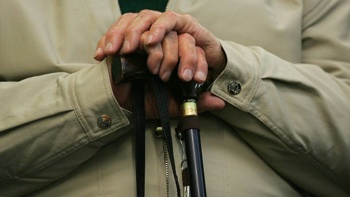There are 61 new confirmed and probable Covid-19 cases in New Zealand, Director of Public Health Dr Caroline McElnay says.
Today's 61 cases are made up of 47 confirmed cases and 14 probable cases, she said.
Today's new cases mean there are now a total of 708 confirmed and probable cases in New Zealand, with 14 people in hospital.
Two of those in hospital are in ICU but are stable.
There are 82 cases who have recovered. No further deaths have happened.
McElnay said there was still a strong link to overseas travel, with just over half of the cases reporting overseas travel.
About 1 per cent of cases were due to community transmission.
A new case definition for testing would be issued today, she said.
"But we do rely on clinical judgment at all times," she said.
Anyone with respiratory symptoms consistent with Covid-19 should now be tested regardless of whether they had been overseas or in close contact with a confirmed case.
- Mike's Minute: Politics is creeping into Covid-19 response
- Unemployment could hit 'double digits' as Covid-19 hammers NZ
- US death toll eclipses China's as reinforcements head to New York
This would lead to more testing.
About 1843 tests per day were being conducted in the past week, with daily capacity at about 3700 tests.
More testing capacity is being added, she said.
A number of clusters, or outbreaks from connected cases, have sprung up, McElnay said.
She said in those clusters, close contacts needed to be identified so get better control of the spread of the virus.
The Ministry of Health had been in touch with 418 close contacts, she said.
People were contacted by phone to keep up the rules of physical distancing, she said.
Civil Defence's Stuart-Black thanked Māori for their contribution to helping fight the Covid-19 outbreak.
"They are connected across all levels of the Covid-19 response."
She said the first charter flight taking New Zealanders returning from overseas from Auckland to their respective homes around the country had left, and there would be more flights in coming days.
Those people are required to self-isolate.
The national state of emergency was extended yesterday, and Stuart-Black said that was necessary because each time it is declared, it expires after seven days. The expiry was a safeguard, and states of national emergency can be extended as needed.
The state of national emergency was independent of the Covid-19 alert level system, she said, adding that some people had been confused.
Stuart-Black said the emergency powers had been used a number of times so far, including stopping people doing on-essential activities.
"Staying home saves lives."
She said most New Zealanders continue to comply with the lockdown rules.
Some road obstructions had been in place to keep neighbourhoods safe, and police had been providing advice, she said.
Ministry of Health apology
McElnay apologised unreservedly for breaching the privacy of two people with Covid-19 yesterday in a press release.
She said it was "encouraging" for the growth of the number of cases to be declining, though she said more cases would come through because there will be more testing.
Getting 5000 tests a day would be ideal and that could happen when more labs are brought on, she said.
She said work was ongoing to procure more ventilators.
There are about 500 ventilators in public hospitals and about 250 more in private hospitals, and more are being ordered from overseas.
The number of tests was plateauing, she said.
She conceded that there was a lot of uncertainty around the current 1 per cent of community transmission, which was criticised as "meaningless" yesterday by epidemiologist Sir David Skegg.
With more testing, it would take a couple more weeks before a clearer picture of community transmission emerged, she said.
Getting PPE to the front line
McElnay said personal protective equipment (PPE) was being distributed to healthcare workers as a priority.
"Certainly we're getting that PPE out to those on the frontline."
Some nurses have been asking for more masks, but McElnay said she did not have those details and could not speak to that point.
"PPE is part of the controlled approach that includes physical distancing and hand hygiene."
She said surveillance sentinel testing would start, which could look at where Covid-19 is present around the country.
But how that would work was still being worked through, as face-to-face consults for Covid-19 were happening less and less.
Stuart-Black said she didn't have the numbers on how many people arriving from overseas had gone into self-isolation.
Those people had no symptoms and had a suitable self-isolation plan, including how they got home.
Others without a self-isolation plan had been put into supervised accommodation, and when they have a suitable plan to self-isolate they were being flown home on chartered flights.
McElnay said the Ministry was "very aware" of the risks of people returning to New Zealand from overseas.
Everyone arriving at the border was being screened, she said.
Contact-tracing was being done remotely, and more people were being brought on.
Flu jabs
GPs have been told that there is a supply issue with flu vaccines, but McElnay said it was a distribution issue
It was being worked through, she said.
Take your Radio, Podcasts and Music with you









